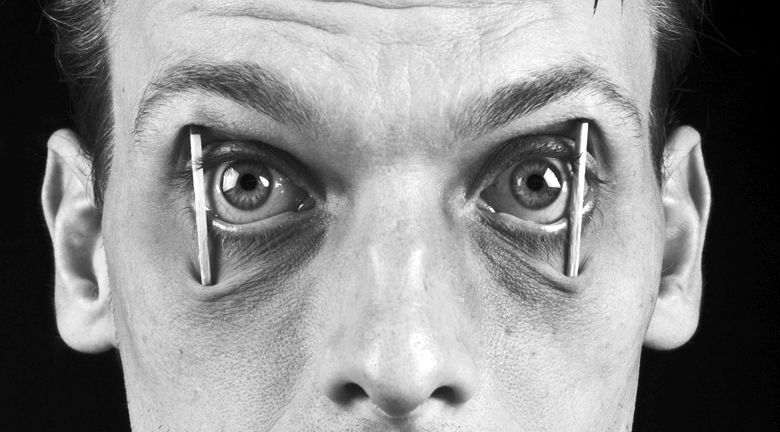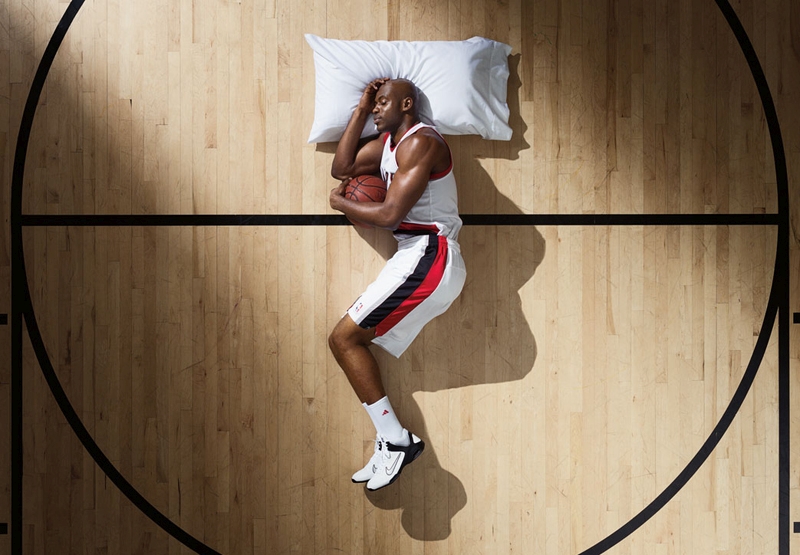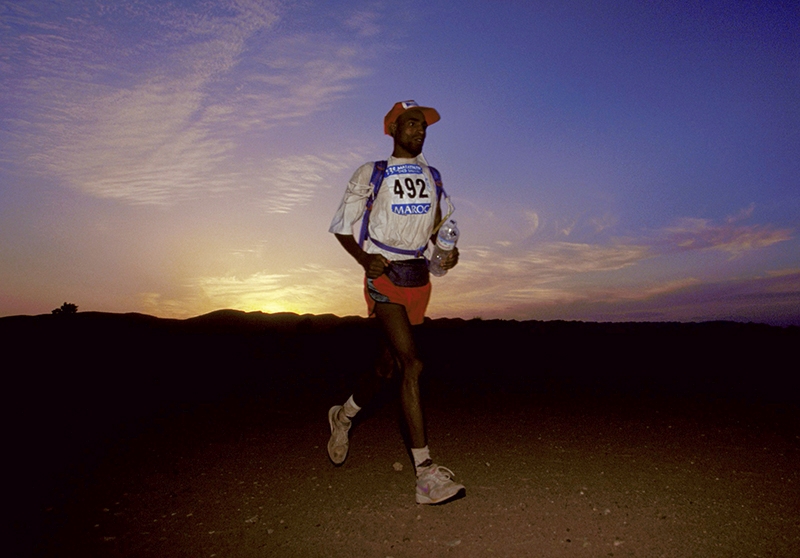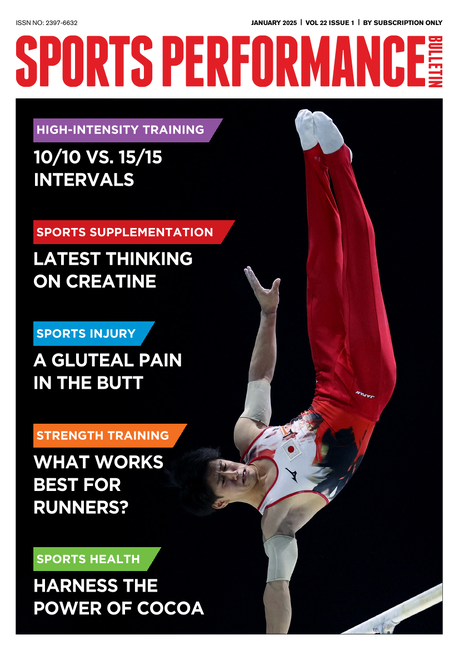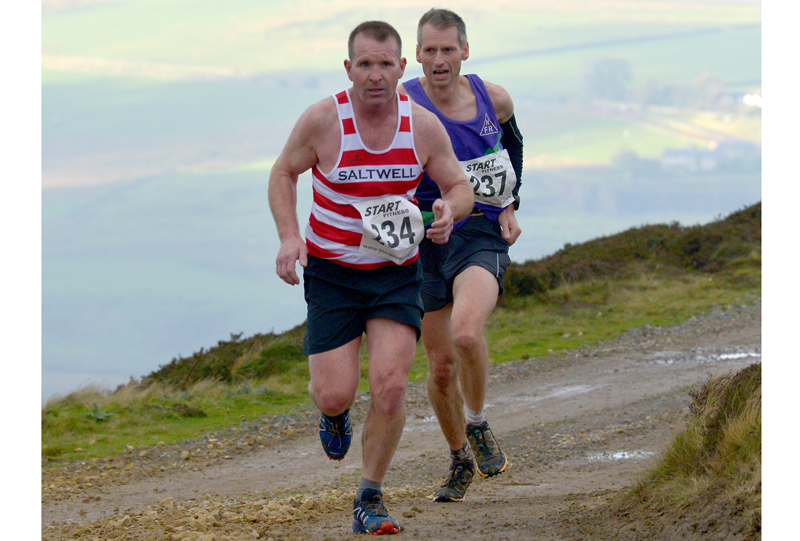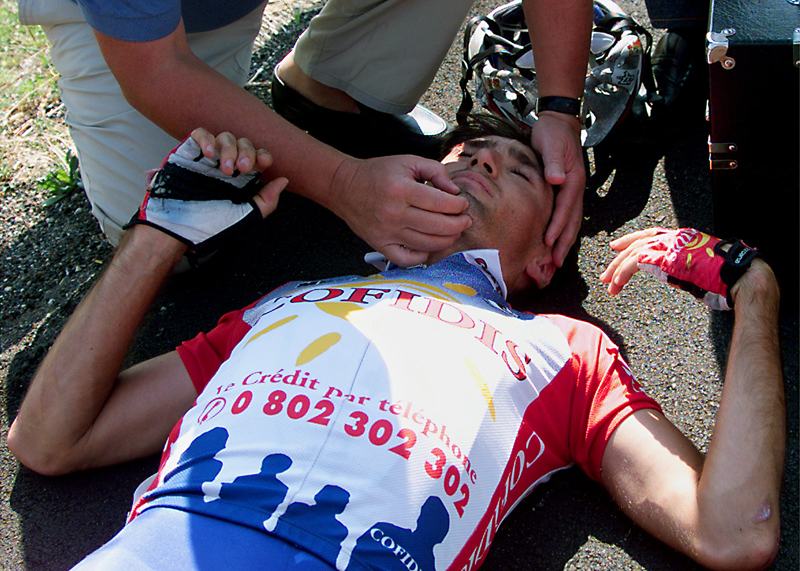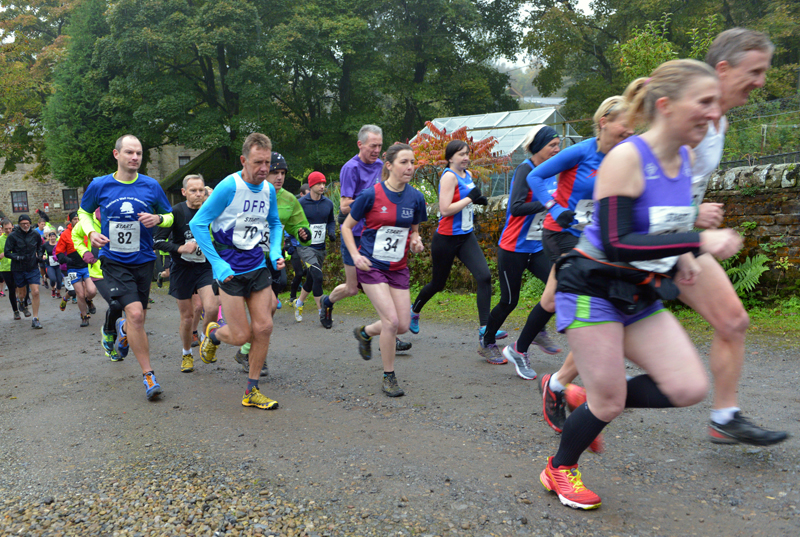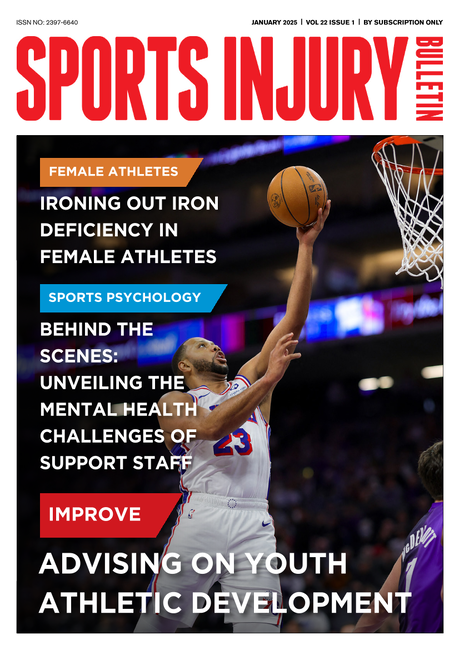You are viewing 1 of your 1 free articles. For unlimited access take a risk-free trial
Confessions of an insomniac: how to improve your sleep quality
 James Marshall explains how insomnia affects athletes and the cycle of decline it can often initiate. He also provides a number of practical tips to arrest this decline and improve sleep quality
James Marshall explains how insomnia affects athletes and the cycle of decline it can often initiate. He also provides a number of practical tips to arrest this decline and improve sleep quality
“Tired nature’s sweet restorer” is how Shakespeare once described sleep. However, one third of the population suffers from insomnia and rarely feels restored. Insomnia is extremely debilitating emotionally and mentally, and affects motivation to train. Importantly, insomnia is different from lack of sleep in that a lack of sleep can be rectified by some simple lifestyle changes (see Sports Performance Bulletin issues 346 and 347) whereas insomnia can be much more difficult to overcome.What is insomnia?
Insomnia can be defined as any difficulty falling asleep, poor quality asleep, staying asleep or a combination of all three. This is different from just being tired due to lack of sleep (see figure 1). Although many of the population may be sleep deprived due to their lifestyle that can usually be rectified by going to bed earlier, or often by having “lie-ins” at the weekend.Figure 1: Defining insomnia

Sleep is a varied pattern of different states ranging from deep sleep earlier on in the night, to lighter sleep nearer waking time. Waking up happens frequently, but normal sleepers fall back to sleep in seconds and are unlikely to remember it. However, insomniacs often wake up and stay awake (see table 1).
Table 1 Normal insomnia and depression sleep patterns
| Normal | Insomnia | Depression or Anxiety | |
|---|---|---|---|
| Sleep onset | 10 | 45 | 45 |
| Awakenings | 2 | 6 | 2+ |
| Early morning | No | Yes | Yes |
| Total time asleep | 7.5 hours | -5.5 hours | 6.0 hours |
The onset of insomnia can be caused by many factors, including illness, stress, depression medication etc (see figure 2). If your sleep habits and lifestyle are good, then it may just be a temporary stressful situation leading to short-term sleep disruption. But, if your lifestyle habits are bad, once the initial cause of poor sleep is removed, the insomnia may remain. This can lead to a cycle of insomnia leading to bad habits leading to insomnia and so on.
Figure 2: Factors causing insomnia

For example, if you have had a run of 3 or 4 nights of broken sleep you will be feeling what can best be described as ‘groggy’ during the day. In order to cope with the daily demands of life, you may reach for caffeine, sugary snacks or take a nap. Or, in order to help you get to sleep you might reach for a nightcap. Whilst these provide a temporary boost (or relaxant in the case of alcohol), they can often lead to worse sleep the following night.
When this continues for weeks, months or even years, the serial insomniac views ‘going to bed’ differently from that of a normal sleeper. Instead of looking forward to a good night’s sleep, they go to bed hardly expecting to feel refreshed the next morning. If they wake up, it fulfils their negative expectations and they become more anxious. A mindset emerges of ‘If I sleep well, I will feel good but if I sleep badly I will feel awful’. It is hard for non-insomniacs to understand how demoralising this can be.
Does insomnia affect performance?
“So what? Just get on with it!” you may say. But insomnia can affect performance in many ways. To reiterate, insomnia is different from just getting a bad night’s sleep which all athletes will occasionally have. It is hard to find studies on insomnia in athletes; almost all studies only mention sleep duration or sleep quality, and are short term.One study found that elite athletes spent 8.5 hours in bed, but only slept for 7 hours - a sleep efficiency rating of 81%Journal of Sports Science 30 (6) p541-545 (2012). However, non athletes in the same study spent 8 hours in bed, but slept for 7.25 hours a sleep efficiency of 89% (see figure 3). Some of the elite athletes may have been insomniacs, but this wasn’t diagnosed.
In another study on Australian athletes, the individual sports athletes only averaged 6.5 hours sleep a night with the team sports players averaging 7 hoursEuropean Journal of Sports Science 14 p123-130 (2014). Overall however, the athletes averaged 8.4 hours in bed, with a sleep efficiency of 86%.
Research suggests that swimmers with early morning starts can suffer from a kind of ‘training jet lag’, where they might only get 5.4 hours sleep on training days and then 7.1 hours on rest daysEuropean Journal of Sport Science, 14 (1) p310-315 (2014). Worse still, the sleep efficiency in this study was only 71% and 77% respectively, with time in bed being 7.7 hours and 9.3 hours. This is plenty of time in bed, but with a very low sleep efficiency. Just spending more time in bed is unlikely to help these athletes; they need to improve their sleep efficiency first.
One direct consequence of a lack of sleep can be an increased likelihood of injury. Studies have shown that adolescents sleeping more than 8 hours have a 68% reduction in injury risk compared to those who sleep less than 8 hoursJournal of Pediatric Orthopaedics 34 (2) p129-133 (2014). In the general population, sleep deprivation is associated with a higher body mass index but whether it is a cause or an effect is hard to prove Journal of Physical Activity and Health 12 p1567-1575 (2015). Sleep deprivation can lead to a lack of motivation to train and therefore sedentary behaviour. Conversely, a lack of physical activity could be leading to poor sleep quality!
One thing that is affected by lack of sleep is your ability to think clearly. This is because chronic sleep deprivation leads to cellular disorganisation and degeneration in selected brain areas – the hippocampus, prefrontal cortex, amygdala, and hypothalamusBiological Rhythm Research 47 (3) p425-437 (2016). The good news is that this can be recovered with 2 good nights’ sleep.
Figure 3: Sleep efficiency in athletesJournal of Sports Science 30 (6) p541-545 (2012).

CASE STUDY: Loneliness of the long-distance runner

Richard, a 46-year old middle distance runner, had suffered from insomnia for as long as he could remember. He had measured his sleep duration in his training diary for over twenty years and rarely had 7 hours unbroken sleep. He got 8 hours continuous sleep maybe once a year. Most nights he went to bed at 10.30pm and set his alarm for 6.00am to get a good start. He is married with two primary school age children, so wanted to exercise before they got up and he went to work.
His sleep diary showed that he would get 2-3 hours’ sleep, wake up for 1-2 hours and then get another 2-3 hours’ of lower quality sleep before his alarm went off. If he had been awake in the night, he would often hit the snooze button and then miss training. He would then feel guilty and try to fit in more training the next day if he slept well. As the day wore on he would reach for sugary snacks in order to keep going, because he felt like nodding off mid-afternoon. If he worked from home, he would nap after lunch to avoid the snacks. At night, if he sat down after 8pm he would nod off. The only way to stay awake was to keep moving.
Richard had previously seen a neuro-linguistic programming (NLP) practitioner, who gave him an audio tape with a series of relaxing exercises. This worked when he used it, but since being married and sharing a bed, he didn’t, because it annoyed his wife who always went to bed first and slept soundly for 9 hours.
He finally went to see his GP after a friend suggested he seek help. It wasn’t the lack of sleep that bothered Richard, it was the reliance on sugary snacks, skipping exercise and drinking wine at night to get to sleep that worried him. The GP was sympathetic and referred him to two different specialists, one, a neurologist who asked him to perform various simple motor skills, another who simply concluded that Richard was a hypochondriac!
A year after he first saw the GP, he got an appointment with a sleep clinic. The sleep clinic consisted of four appointments with a sleep specialist who gave Richard information about insomnia, healthy sleep and tasks to perform every week. Within 6 weeks Richard was sleeping solidly every night and a year later had had only 3 disrupted nights of sleep. This compared to experiencing 3 or 4 disrupted nights of sleep. every week previously.
The hardest part was remaining disciplined on the action points for the first 2-3 weeks, whilst feeling extremely fatigued. However, the weekly sessions were useful as they were shared with another insomniac who was equally as distraught. Rather than feeling abnormal and trying to get 8 hours sleep every night, Richard was able to share his thoughts freely and find out that they were typical of insomniacs.
The strategies listed in this article were used, but the most effective for Richard was the sleep-efficiency diary. He realised that he only needed 6 hours sleep a night and had been trying to have much more. Rather than going to bed earlier, he got up earlier – around 515am. By being consistent with his wake up time and working back from there he was able to sleep throughout the night. Richard decided to get up earlier rather than stay up later because he was able to be more productive in the morning. As he explained, “All I do if I stay up late is watch TV. But getting up early means I can read and then train and be ready for when the kids wake up at 7am. I didn’t want to be one of those weirdos who gets up at 5am, but I am and feel much better for it!”
Breaking the insomnia cycle
This assumes that you have attended to the basics such as avoiding screen time in the evenings, refraining from caffeine after mid-afternoon and eating earlier where possible.*STEP 1: Set up your bedroom for sleep
Your bedroom is for sleeping only (and sex) so remove any obstacles or distractions to that effect. This includes books. Whilst it is often advised to read before bed, you need to establish the bedroom as a place to sleep only. Read elsewhere until your eyes are shutting and then go into your bedroom. This may involve some marital discussions, especially if your spouse likes watching TV, checking their emails or doing their ironing when in the bedroom (and then annoyingly sleeps for 8 hours solid)!*STEP 2: Reframe the insomnia as a problem to solve (rather than a reason for slipping into bad habits)
Insomniacs tend to have two states: awful and good. But, try to use a scale of 1-10 when you wake up in the morning with 1 being awful and 10 being excellent. You will often wake up in range 2-4. Ask yourself then if eating sugary foods, avoiding easy exercise or avoiding spending time with a friend will make you feel better at the end of the day? The answer is no and that over time the good habits will help improve your sleep.*STEP 3: Establish a sleep schedule
This is the hard bit- First of all, look at what time is the earliest you need to get up in the week and then get up at that time every day, including weekends. If you have to get up early on Wednesday at 6am to drive to a meeting, then that is the time you need to get up the rest of the week too. You must be disciplined in this and then your body will adjust.
- Then monitor your sleep efficiency over the next week. You can do this by measuring your total sleep time and average time in bed, then dividing your sleep time by time in bed, and multiplying by 100. For example, time in bed: 480 minutes. Time asleep 360 minutes. Sleep efficiency = (360/ 480) x100 = 75%.
- In the above example, the actual sleep time was only 6 hours, so you would need to set your bed time for 6 hours ahead of your wake up time. Only go to bed at this time and not before. If you are unable to sleep within 15 minutes of your new bed time, get up and do something else outside of the bedroom.
- Monitor things for a week and see what your average sleep time was and your sleep efficiency. Your sleep efficiency needs to be above 90% regularly before you extend your time in bed.
- When efficiency is above 90%, extend sleep time by 15 minutes and repeat the above process. If it is below 85% you need to reduce the time spent in bed by 15 minutes and try again.
*STEP 4: Set up a buffer zone
By now you should be feeling very tired and sleeping more solidly with less time in bed. However, this is unsustainable and it is time to develop better habits. One of these is a buffer zone between daily activity and sleep. This means switching off from work and domestic duties as well as not thinking about training. For example, if you are planning to go to sleep at 11pm, this now also means going to bed at 11pm. The length of the buffer zone depends on what else you have to do. There is no point saying it should be 2 hours if you don’t get home from training until 10pm! But you should have stopped being busy mentally for at least 30 minutes before you plan to go to sleep.This means switching off emails, texts and all social media. Watching TV is fine, as long as it is calming rather than stimulating. Simple things like cleaning your teeth just before bed can actually wake you up a bit, so try and do that earlier, as well as any other chores such as packing your training bag, or making your lunch for the next day.
If your mind is racing, try writing down the things that need to be done the next day, as well as the things that are concerning you. Then write down the positive things that have happened to you that day, or that you have done, as well as something to look forward to the next day. That way you are finishing on a good note before you start your buffer zone.
Your buffer zone may for example include reading (out of bedroom), some chores or listening to music. If you have a longer buffer zone, you may well start to fall asleep too early and take impromptu naps that are stealing from your night’s sleep. If so, you may have to do something physical to stay awake such as stretching, having a shower or going for a walk around the block.
*STEP 5: Stop tossing and turning
Insomniacs will often toss and turn in frustration at being awake in bed. If you are either unable to fall asleep within 15 minutes of going to bed, or are awake for more than 15 minutes in the night, get up out of bed and do something else. This will not improve your sleep that night, but it will help you sleep the next night. Use the time to do something that you like – for example, an extra 15 minutes of reading time or doodling or a jigsaw. You could try progressive muscular relaxation if your body is particularly tense. Thinking about losing sleep ahead of your ‘big day’ only makes things worse. When you start to nod off, go back to bed and start again. It will be tempting to hit the snooze button when your alarm goes off, but you must keep to the same wake up time.In summary
Being an insomniac can be downright miserable, and whilst it is unlikely to damage your health directly, it does lead to a lack of motivation and a potential uptake of bad habits. The commonly held notion that you need to get 8-9 hours’ sleep per night is incorrect for many people. By following the steps outlined here, you have a great chance of curing your insomnia and enjoying many good (albeit shorter) nights of sleep!Newsletter Sign Up
Testimonials
Dr. Alexandra Fandetti-Robin, Back & Body Chiropractic
Elspeth Cowell MSCh DpodM SRCh HCPC reg
William Hunter, Nuffield Health
Newsletter Sign Up
Coaches Testimonials
Dr. Alexandra Fandetti-Robin, Back & Body Chiropractic
Elspeth Cowell MSCh DpodM SRCh HCPC reg
William Hunter, Nuffield Health
Keep up with latest sports science research and apply it to maximize performance
Today you have the chance to join a group of athletes, and sports coaches/trainers who all have something special in common...
They use the latest research to improve performance for themselves and their clients - both athletes and sports teams - with help from global specialists in the fields of sports science, sports medicine and sports psychology.
They do this by reading Sports Performance Bulletin, an easy-to-digest but serious-minded journal dedicated to high performance sports. SPB offers a wealth of information and insight into the latest research, in an easily-accessible and understood format, along with a wealth of practical recommendations.
*includes 3 coaching manuals
Get Inspired
All the latest techniques and approaches
Sports Performance Bulletin helps dedicated endurance athletes improve their performance. Sense-checking the latest sports science research, and sourcing evidence and case studies to support findings, Sports Performance Bulletin turns proven insights into easily digestible practical advice. Supporting athletes, coaches and professionals who wish to ensure their guidance and programmes are kept right up to date and based on credible science.
